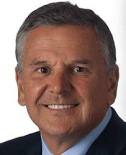
For years, Florida’s top education officials have said the state needs to do more to recruit nationally recognized charter schools to the state’s urban areas — especially in high-poverty neighborhoods where students struggle.
But today, some members of the state Board of Education said those efforts might require more money.
Florida is home to more than 650 charter schools, but only a few run by high-profile national networks with a reputation for raising achievement among low-income students.
The state is trying to change that with grants that set aside extra money to support collaboration between charters and school districts in Jacksonville and Miami. The goal is to attract more “high-impact” charter school networks, and beef up charter school authorizing in Duval and Miami-Dade Counties at the same time.
Board member Rebecca Fishman Lipsey said KIPP is eyeing a Miami expansion, but Florida’s per-pupil education funding doesn’t cover the costs of the charter school’s approach, which includes longer school days and longer school years to help students catch up academically.

“In order for them to do what they do, they need to raise a ton of money privately,” she said. “If there are ways that we can support them, knowing how much they’re doing to supplement the costs … I would love to see us support them.”
Board member Gary Chartrand has personally backed KIPP’s only existing group of Florida schools, located in Jacksonville. He noted state lawmakers have set aside extra money for the additional instructional time students receive there.
This year’s state budget provides per-student funding of about $7,180 per student and sets aside an extra $1.2 million for KIPP Jacksonville.
Even with private fundraising, Chartrand added, the state needs a systematic program that goes beyond one-off line-item appropriations to bring KIPP-like charter operators to more of its inner cities.
“Most of them are actually not in Florida because of the fact that they can go places with better funding,” he said, adding: “We need better legislation around high-impact charter schools.”


